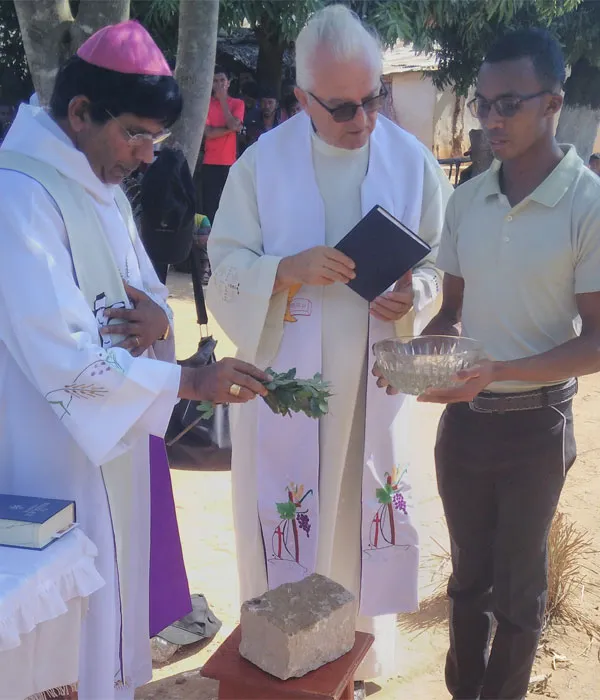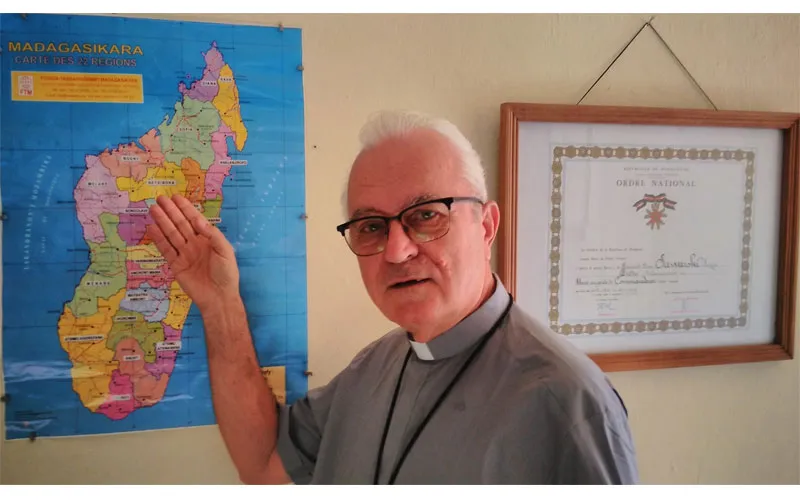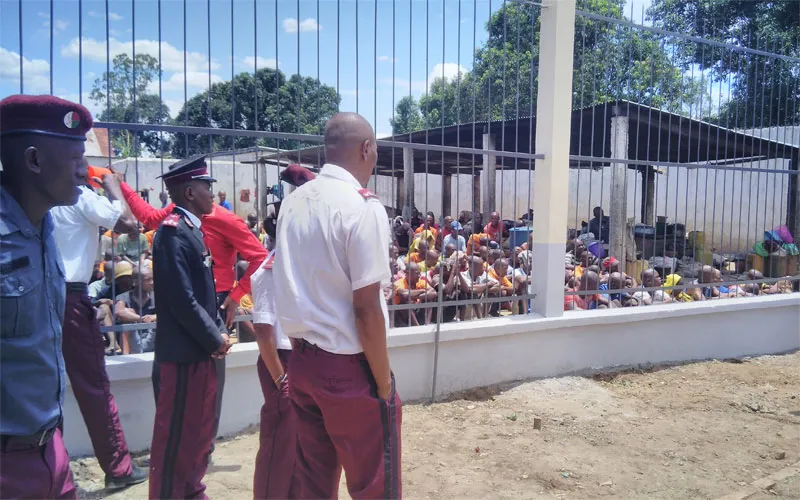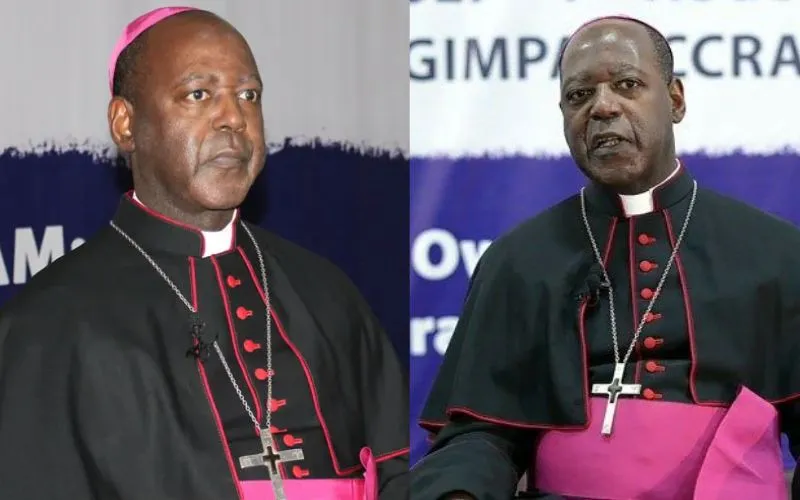The missionary Cleric shares the conversion of an inmate who has since been released from prison and has been giving back to those who are still held behind bars.

“Jean was in prison because he had sold the meat of stolen cattle. In prison, he yearned for his wife and his children, who were no longer able to go to school due to lack of money. I often talked with him – also about spiritual things – and he said to me, ‘Father, when I get out of here and work again, I will look for something else to do so that I will no longer sell the meat of stolen cattle; I will no longer cheat my customers by using false weights so that I will not have to return to prison. I will raise my children to be good people and I promise that I will pray fervently.’”
Fr. Sawarski continues in reference to the testimony of Jean, the prisoner, “He was a Protestant. And he said, ‘When I come to Port-Bergé, I will bring you and the inmates something.’ And that is what happened. Occasionally he would bring meat and when I asked him, ‘Jean, but this meat is not from stolen cattle, is it?’, he would answer, ‘No, no!’ Occasionally he would also bring some rice or fruit with him. Is this not a wonderful example of someone who has mended his ways and is living days of mercy?”
Fr. Sawarski believes that prison is “a special kind of hospital” where those incarcerated there are the emotionally and mentally battered, the morally broken, the intellectually uneducated, as many in the bush country were not able to attend even primary school, and the physically damaged, according to ACN.
(Story continues below)
“It is necessary to invest a great deal of time and effort in order to gather any fruit, but there is more rejoicing in heaven over one sinner who repents than over a righteous person,” the missionary says in an interview with the aid organization.
ACN has helped set up a chapel and a small library at the prison premises that was, until Fr. Sawarski stepped in, without a chaplaincy.
“Christ himself teaches in the gospels, ‘I was in prison, and you came to visit me’ (Mt. 25:36). The veneration of Divine Mercy is a crucial and effective factor in the process of change and conversion. Our chapel serves this purpose,” Fr. Sawarski says.
He adds referencing the chapel, “It stands under the patronage of Saint Dismas, the good thief on the cross, who is an example of personal change and conversion. Nothing is ever lost – you can be saved, even at the last moment, as Christ promised to the thief from the cross. “Today you shall be with me in paradise.”
Agnes Aineah is a Kenyan journalist with a background in digital and newspaper reporting. She holds a Master of Arts in Digital Journalism from the Aga Khan University, Graduate School of Media and Communications and a Bachelor's Degree in Linguistics, Media and Communications from Kenya's Moi University. Agnes currently serves as a journalist for ACI Africa.










